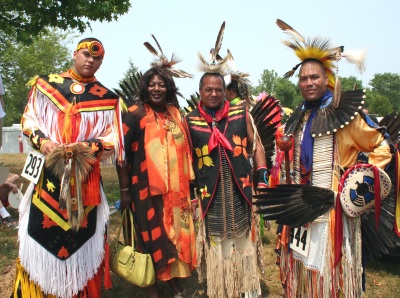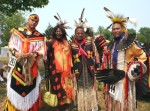This post is written by Sam Riviera, a frequent contributor to this blog.
 The adults of the village filed into the community meeting house and found their usual seating locations, which identified their rank within the tribe. Everyone was dressed in accordance with the customary dress for such occasions.
The adults of the village filed into the community meeting house and found their usual seating locations, which identified their rank within the tribe. Everyone was dressed in accordance with the customary dress for such occasions.
Music began. The crowd swayed and chanted with the music. Everyone knew the music and the words. Containers of drink were passed from person to person and everyone drank a few sips.
An elder stood and spoke. Everyone respectfully listened. The tribal meeting concluded with more music.
Though this description sounds like something that only happens in a Native American ceremony or in an Indonesian jungle, the description above actually describes what happens in countless churches around the world every Sunday morning.
But is this wrong?
Our Tribal Urge
We all have a tribal urge. A tribe is group where one can belong and others are excluded; the place where one knows their place and exactly what is expected of them.
A tribe consists of people who will be there in one’s time of need; the people who will not allow one to die alone.
This all sounds fine, but why do we want to belong to a tribe? Are there advantages? Are there disadvantages? Can the tribal urge find fulfillment in Christ? Can it find fulfillment in the church?
Or does the tribal urge conflict with Jesus’ command to love our neighbors as ourselves?
The Russian thinker Peter Kropotkin, in his book Mutual Aid: A Factor of Evolution suggested that survival is the result of cooperation of people together against the environment. Each person benefits from the things others contribute and share. Can this best be accomplished within the tribe or within society at large?
Do we form tribes for the purpose of surviving in a harsh environment, or as an attempt to group with others similar to ourselves and to exclude all others? Is the tribe an effort to meet our own needs, to the exclusion of the needs of others?



